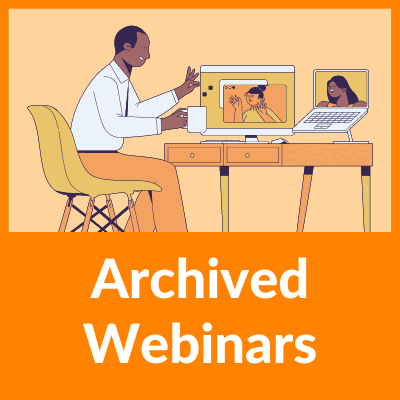
Resilience can be thought of as the capacity of a system to adapt successfully in the face of threatening circumstances, whether the “system” is a child, a family, or a community. Adaptation requires resources that can meet the demands of challenging circumstances. In this webinar, we suggest ways that people can activate different sources of resilience, each of which can be viewed as a protective layer. The webinar offers novel ideas and concrete practices to strengthen resilience for ourselves and those we serve.
*This webinar will be presented in English with simultaneous interpretation into Spanish*
Watch the Webinar Recording
Download the Presentation Slides
Take the Evaluation
- Identify multiple sources of resilience resources
- Develop a toolkit of three resources for personal use
- Identify ways to help someone restore balance from stress
Presenters

Kaethe
Weingarten
Ph.D.
Migrant Clinicians Network
Kaethe Weingarten, Ph.D. (she/her) is the founder the Witness to Witness (W2W) Program. The goal of W2W is to help the helpers, primarily serving health care workers, attorneys and journalists working with vulnerable populations. She received her doctorate from Harvard University in 1974. She has taught at Wellesley College (1975-1979), Harvard Medical School (1981-2017), where she was an Associate Clinical Professor of Psychology in the Department of Psychiatry at Children’s Hospital Boston and then Cambridge Health Alliance, and at the Family Institute of Cambridge (1982-2009). She founded and directed the Program in Families, Trauma and Resilience at the Family Institute of Cambridge. Internationally, she has taught in Africa, Australia, Canada, Europe and New Zealand, where she was a Fullbright Specialist. She has given over 300 presentations and been a keynote speaker at numerous local, national and international conferences. She serves on the editorial boards of five journals. In 2002 she was awarded the highest honor of the American Family Therapy Academy, the award for Distinguished Contribution to Family Theory and Practice. She has written about her work in six books (which she has authored or edited) and over 100 articles, chapters and essays. Her most recent book, Common Shock: Witnessing Violence Every Day- How We Are Harmed, How We Can Heal won the 2004 Nautilus Award for Social Change. Dr. Weingarten’s work focuses on the development and dissemination of a witnessing model. One prong of the work is about the effects of witnessing violence and trauma in the context of domestic, inter-ethnic, racial, political and other forms of conflict. The other prong of the witnessing work is in the context of healthcare, illness and disability. Her work on reasonable hope has been widely cited. In 2013, Dr. Weingarten and her husband moved to Berkeley, CA to be near their children and five grandchildren. There she resumed a dance and choreography practice she had let lapse for forty-five years. Since moving to Berkeley, she and her dance collaborator have been awarded five grants for their choreography with elder dancers applying a witnessing model in public spaces. In 2018 they performed at the Oakland Museum of California. In her spare time she enjoys hiking, baking and crocheting afghans.
Continuing Education Credit (CEU)
[Continuing Education Credit (CEU)]
We are pleased to offer 1.5 hours of CNE or CME* credit at no cost to participants.

CNE Credit: Migrant Clinicians Network is accredited as a provider of continuing nursing education by the American Nurses Credentialing Center's Commission on Accreditation. To receive continuing nursing education certificate, participants must submit the evaluation for each session.

